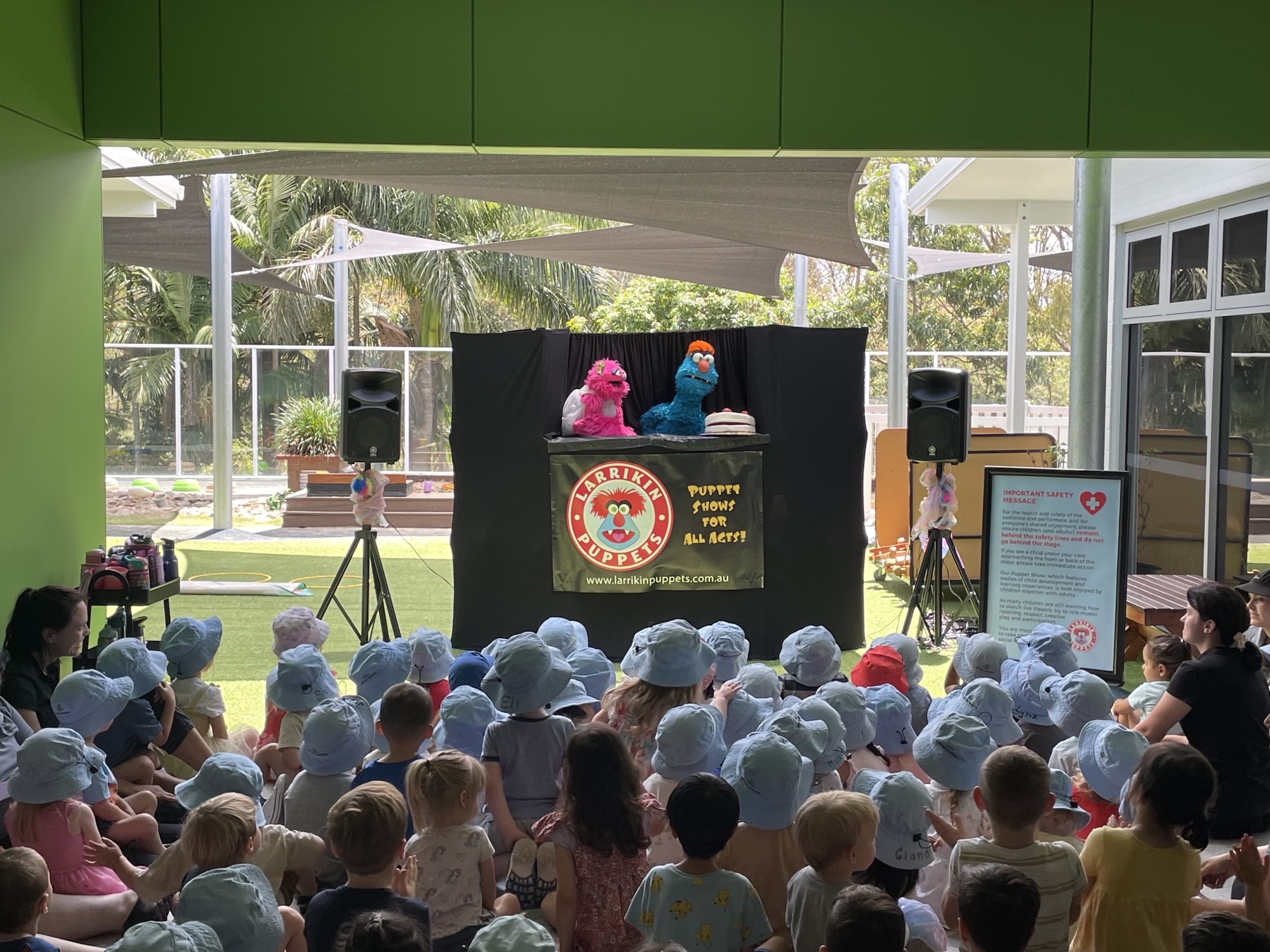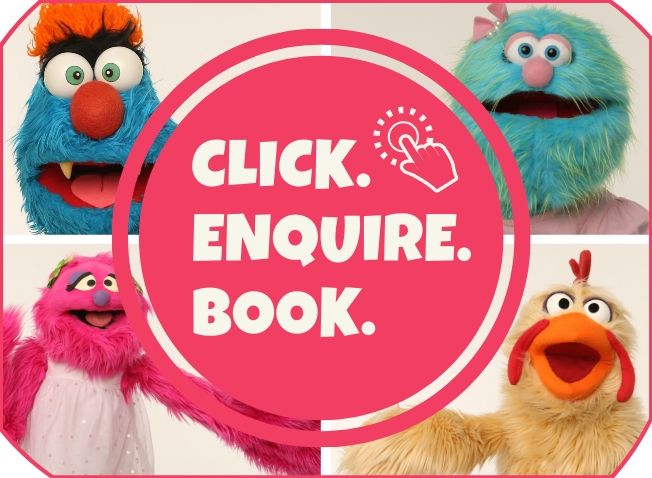How Our Puppet Shows Support EYLF 2.0 & QKLG
Our live puppet shows offer a fun, interactive experience that aligns with both the Early Years Learning Framework (EYLF) 2.0 and the Queensland Kindergarten Learning Guideline (QKLG). These frameworks guide early childhood education and support key learning outcomes in a child’s development.
Our shows include:
Kindness and Anti Bullying Puppet Show
Health and Wellbeing Puppet Show
Marina’s Marine Adventure Puppet Show
Our Planet At Play: Environmental Sustainability Puppet Show
Additionally, our Puppet Play And Communication Program with Larrikin Puppets is a practical, highly interactive class where children have the opportunity to play with a selection of 25 hand puppets, folk puppets and finger puppets. Together we learn how to make puppets talk, move, sing, dance and tell stories.
EYLF 2.0 (Early Years Learning Framework Version 2.0)
| Learning Focus | EYLF 2.0 Link | How Our Puppet Shows Support This |
|---|---|---|
| Communication | Outcome 5: Children interact verbally and non-verbally | Puppets model language use, storytelling, listening, and interaction |
| Identity | Outcome 1: Children have a strong sense of identity | Puppets celebrate individuality and help children feel seen, heard, and valued |
| Wellbeing | Outcome 3: Children take increasing responsibility for their wellbeing | Puppets demonstrate emotional regulation, kindness, and social skills |
| Connection | Outcome 2: Children are connected with and contribute to their world | Our shows celebrate teamwork, friendship, and a sense of belonging |
| Confidence and Learning | Outcome 4: Children are confident and involved learners | Puppets spark curiosity, creativity, and playful exploration of ideas |
| Play-Based Pedagogy | Embedded across all outcomes | Interactive puppet shows invite active participation and hands-on learning |
QKLG (Queensland Kindergarten Learning Guideline)
| Learning Focus | QKLG Link | How Our Puppet Shows Support This |
|---|---|---|
| Communication | Language and literacy development | Puppets engage children in verbal play, listening, and storytelling |
| Identity | Developing a strong sense of self | Puppets model positive self-expression and encourage children’s uniqueness |
| Wellbeing | Supporting healthy relationships and emotional awareness | Puppets promote empathy, resilience, and understanding of emotions |
| Connection | Belonging and community | Our characters promote inclusivity, kindness, and teamwork |
| Learning Confidence | Engaging curiosity, persistence, and problem-solving | Puppet shows inspire creativity, inquiry, and a joy of learning |
| Play-Based Pedagogy | Core to the guideline | Engaging puppet performances spark play-based learning and exploration |



